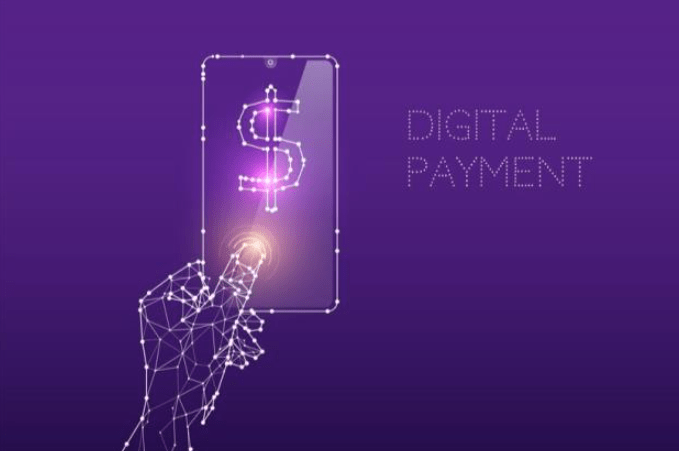
The automotive industry is experiencing a groundbreaking transformation with the rise of connected cars. These vehicles, equipped with advanced internet connectivity and integrated technologies, are reshaping the driving experience. One of the most innovative developments in this space is the integration of digital wallets into connected cars, enabling seamless payments for a variety of services such as tolls, fuel, parking, and even drive-thru purchases. This fusion of fintech and automotive technology is setting the stage for unparalleled convenience, efficiency, and security in daily commutes and long journeys.
The Intersection of Connected Cars and Digital Wallets
Connected cars are essentially mobile IoT devices, leveraging advanced sensors, GPS, and cloud connectivity to offer features like real-time navigation, diagnostics, and infotainment. By integrating digital wallets, these vehicles become a hub for financial transactions, eliminating the need for physical cash or cards.
A study by PwC predicts that the connected car market will reach $225 billion by 2028, with digital payment solutions playing a key role in driving this growth. As digital wallets gain traction across industries, their integration with connected cars offers a glimpse into the future of mobility and finance.
Key Use Cases for Digital Wallets in Connected Cars
1. Toll Payments
Digital wallets enable seamless toll payments without requiring drivers to stop or fumble for cash. Through automatic detection at toll booths, fees are deducted directly from the car’s linked wallet, ensuring a smooth flow of traffic.
- Example: The integration of digital wallets with electronic toll collection systems like E-ZPass in the U.S. has already reduced congestion and improved travel times.
2. Fuel and EV Charging Stations
Connected cars equipped with digital wallets can facilitate contactless payments at fuel stations or EV charging points. This not only enhances convenience but also reduces the time spent on manual transactions.
- Example: Tesla’s Supercharger network is integrating payment systems that allow users to pay for charging through the vehicle’s dashboard interface.
3. Parking Payments
Parking hassles are a common issue for drivers. Digital wallets in connected cars can communicate with smart parking systems to locate available spaces and process payments automatically upon entry or exit.
- Proven Impact: A report by Juniper Research suggests that smart parking solutions powered by connected vehicles and digital wallets could reduce urban congestion by 8-10% by 2025.
4. In-Car Commerce
From ordering coffee at a drive-thru to purchasing groceries via curbside pickup, digital wallets make in-car commerce effortless. Drivers can complete transactions without leaving the vehicle, enhancing the overall experience.
- Example: Automakers like BMW and Mercedes-Benz are partnering with fast-food chains and retailers to enable in-car purchases using integrated digital wallets.
Blockchain and Crypto: The Future of In-Car Payments
Blockchain technology is becoming an integral part of digital wallet solutions in connected cars. Its decentralized and secure nature ensures transparency and traceability in transactions.
Crypto prop firm, specializing in digital asset management, are exploring blockchain-powered wallets for connected vehicles. These wallets allow payments in cryptocurrencies like Bitcoin or Ethereum, offering global accessibility and reduced transaction costs.
- Example: Imagine a connected car paying for tolls or charging stations in cryptocurrency via a blockchain-enabled wallet, bypassing traditional banking systems and ensuring instant payments.
Blockchain also supports the creation of decentralized vehicle-to-vehicle (V2V) ecosystems. In such setups, vehicles could autonomously transact for services like ride-sharing or energy trading, driving a future where cars are active participants in the economy.
Overcoming Challenges
1. Data Privacy and Security
With connected cars generating vast amounts of data, ensuring the security of payment systems is paramount. Cyberattacks targeting payment interfaces pose a significant risk.
- Solution: Leveraging encryption, multi-factor authentication (MFA), and blockchain technology can enhance security and protect user data.
2. Interoperability
Different automakers and payment providers operate on varying platforms, making standardization a challenge.
- Solution: Collaborative efforts between automotive manufacturers, fintech companies, and regulatory bodies can create universal standards for in-car payment systems.
3. User Adoption
While digital wallets are becoming more popular, some drivers may still be hesitant to adopt these systems due to a lack of familiarity or trust.
- Solution: Automakers can incentivize adoption by offering discounts, rewards, or exclusive features for users who activate and utilize digital wallets.
The Road Ahead
The integration of digital wallets in connected cars is just the beginning. Future advancements include:
- AI-Driven Insights: AI-powered wallets could analyze spending patterns and suggest cost-saving options for drivers.
- Subscription Services: Cars may offer subscription-based payment options for services like enhanced navigation or premium music streaming.
- Autonomous Payments: In fully autonomous vehicles, digital wallets could handle all transactions related to the journey, from tolls to meals, without driver intervention.
Conclusion
The fusion of connected cars and digital wallets represents a pivotal step toward the future of mobility and payments. By enabling seamless transactions, enhancing security, and embracing blockchain technology, this innovation is redefining how we interact with our vehicles and the world around us. As automakers, fintech innovators, and crypto prop firms collaborate to refine these systems, the vision of a fully integrated, cashless automotive ecosystem is fast becoming a reality.
Hey welcome to my blog . I am a modern women who love to share any tips on lifestyle, health, travel. Hope you join me in this journey!

Speak Your Mind